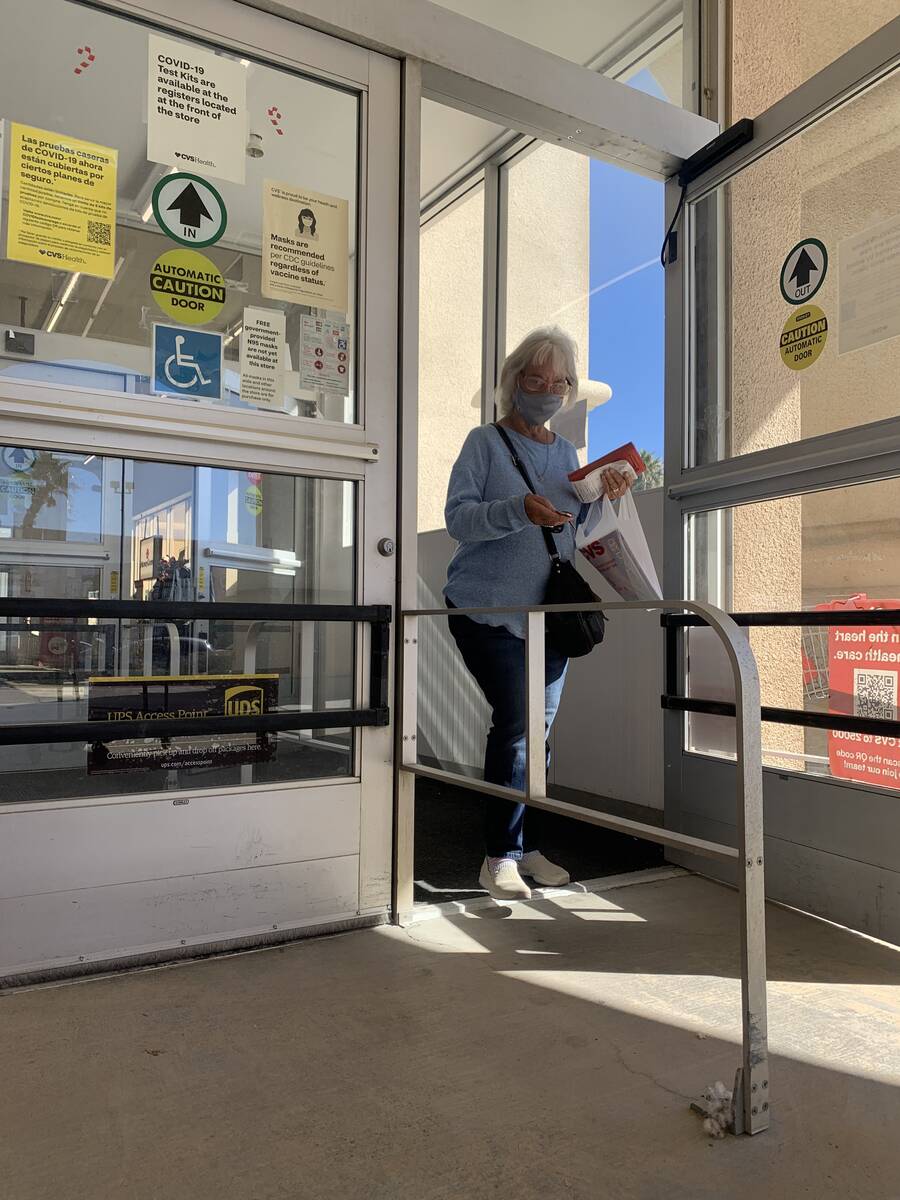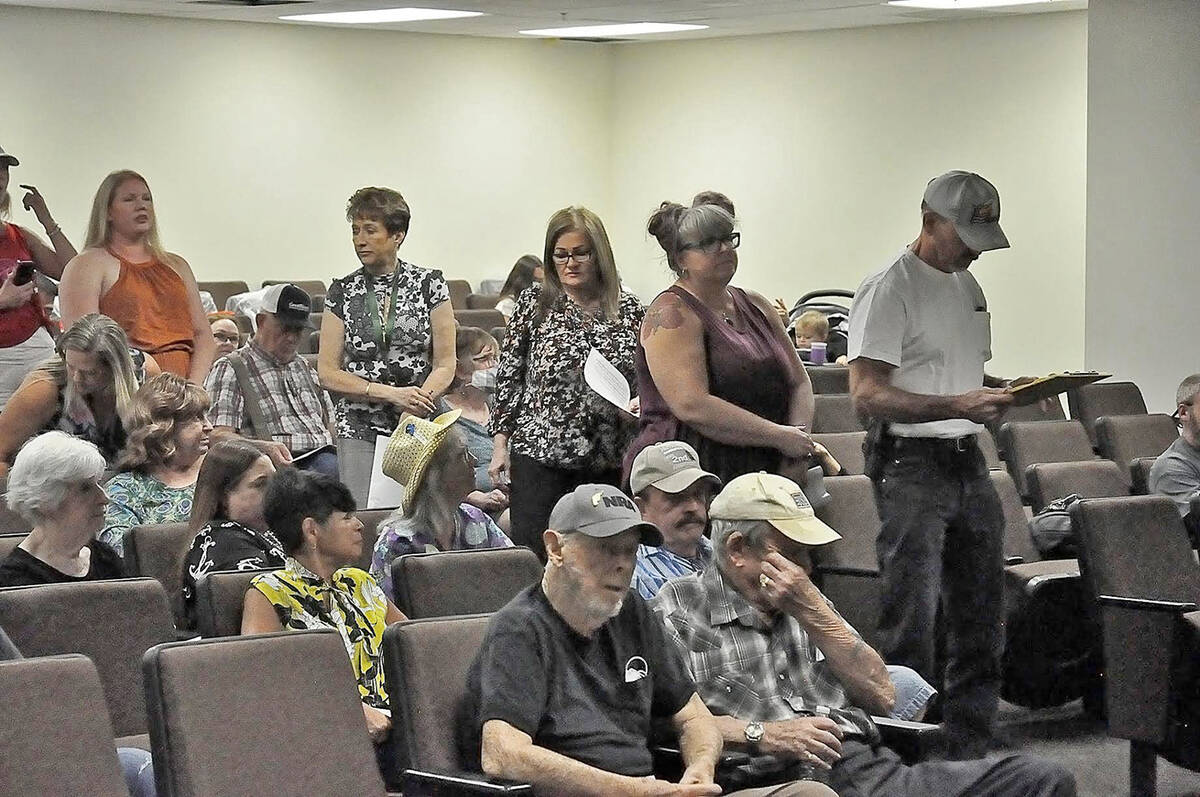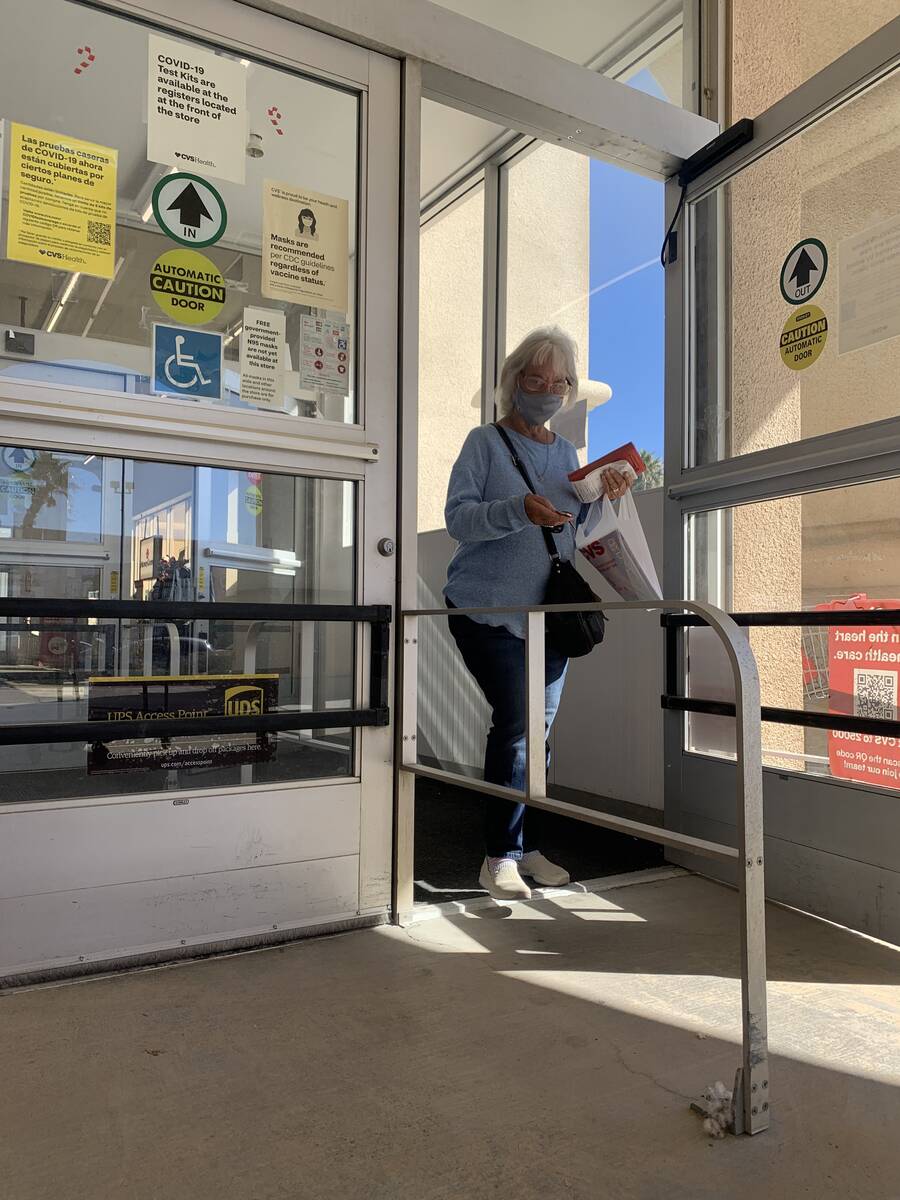Why stores still have mask policies after the repeal of state mandate
Less than a week after Gov. Steve Sisolak lifted the state’s mask mandate, a number of businesses in Nye County are still requiring face coverings for workers and customers, leaving some frustrated by inconsistent messages they’ve heard during the pandemic.
Corporate policies are driving the lingering requirements for masks at some local businesses, despite the governor’s announcement on Feb. 9 that immediately ended mandates for face coverings at indoor places in Nevada.
While Sisolak cited a “rapid” decline in coronavirus cases and falling hospitalization rates last week as why he rescinded the state’s mask mandate, private businesses can still require customers, employees and their vendors — both unvaccinated and vaccinated — to wear masks, as long as those precautions aren’t discriminatory.
At CVS, the national pharmacy and retail chain which operates a store in Pahrump, you’ll still see employees in masks, for now. The pharmacy interacts with a number of immuno-compromised patients and offers onsite COVID testing, so customers and vendors are also “recommended to wear either a face mask or cloth face covering while in store.”
But that’s expected to change in the coming weeks after CVS corporate officials on Wednesday released an internal memo to employees saying the company would end mask mandates for workers and others on March 15, citing an optimistic outlook on new virus cases.
“In light of of the encouraging data, we have revised some of our policies related to COVID-19…” the memo said. “As of March 15, use of masks will be voluntary in all locations, including our stores and distribution centers, except where required by federal, state or local law or regulation.”
Other corporate retailers and chains will likely follow.
Since the beginning of the pandemic, national chain pharmacies, big-box retailers, fast-food franchises and small businesses alike have been forced to outline internal policies about masking that often detail protocols for their own employees and how those workers are supposed to engage with customers who don’t comply to their rules. These policies have varied broadly from business to business, and with mask mandates now lifted in most states in the U.S., customers are becoming increasingly frustrated with what they view as inconsistencies between messages from government officials and business leaders.
Nicole Walters, of Pahrump, on Tuesday blamed county commissioners for allowing the policies of big business to continue to override personal liberties following the statewide repeal of the mask mandate.
“Why are you still allowing big corporations to abuse their workers?” Walters said, at a public meeting of the board of commissioners, noting that workers of many businesses often aren’t afforded the same liberties as their customers when it comes to masking.
Sam Jones, of Pahrump, on Tuesday urged commissioners to take a stronger stance against businesses that still conditionally require masks for their workers and others.
“I know you can’t control private businesses, but you control their licenses,” Jones said. “This mask mandate has got to stop. There’s people getting upset over this. It’s nonsense.”
While Sisolak imposed a statewide mask mandate beginning July 31, 2021 that remained in effect until last Thursday, county commissioners never set stringent policies for masking before that time. In April 2021, the Nye County Commission instead approved a resolution to make masks optional here, although it was superseded by the state’s mask mandate months later.
Commissioner Leo Blundo on Tuesday lauded a number of state and local officials who spoke out against masking requirements during the pandemic, saying they showed “bravery in the face of adversity and tyranny.”
Despite the fact that face coverings have fallen out of favor lately, masks can continue to help slow the spread of COVID-19 when worn consistently and correctly by a majority of people in public settings, according to the Centers for Disease Control and Prevention. Masks are especially effective when used along with other preventive measures, including social distancing, frequent hand washing, and cleaning and disinfecting, according to the CDC.



















